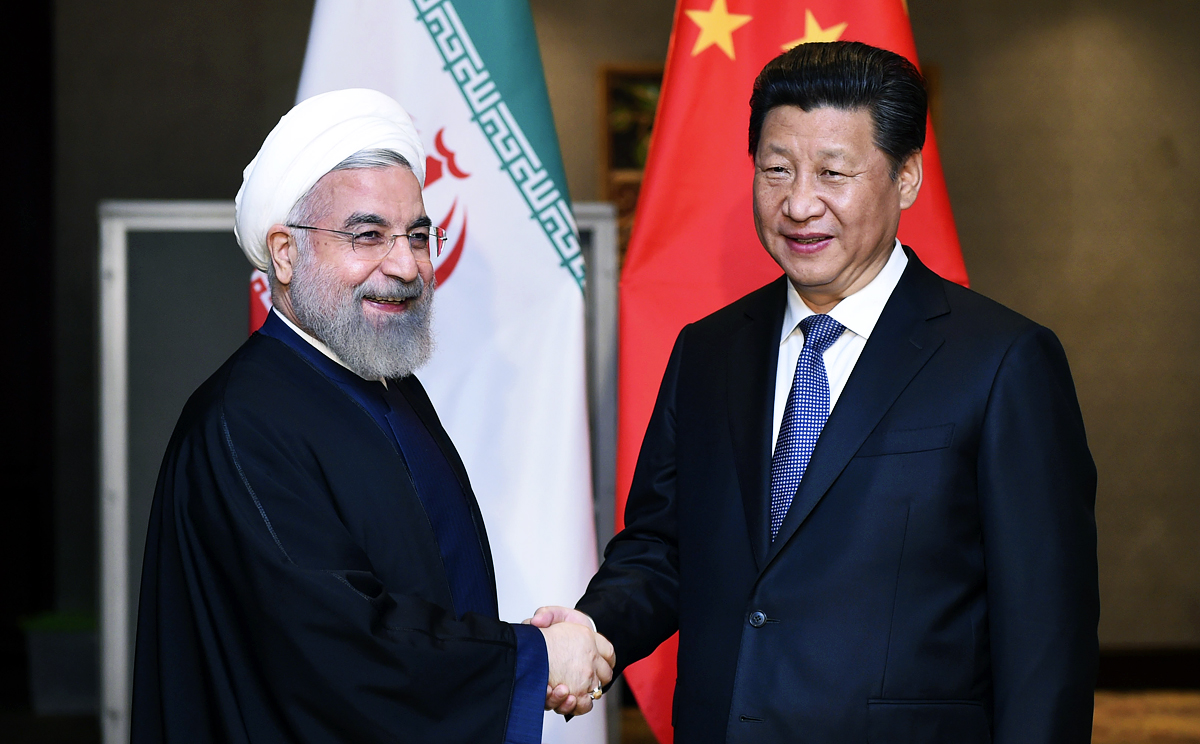Iran appears to be on track to join the regional economic and security alliance known as the Shanghai Cooperation Organization (SCO), ahead of the upcoming SCO summit to be held in Astana on June 8–9.
The meeting of the Council of Heads of State of the SCO is expected to complete the procedure for India’s and Pakistan’s admission, and to discuss Iran’s full membership, which currently holds Observer status and has a history of cooperation with the SCO.
“China highly appraises this. China welcomes and supports Iran's wish to become a formal member of the SCO," Assistant Chinese Foreign Minister Li Huilai told reporters on Monday.
Beijing has close economic and military ties with Tehran, and it also transfers nuclear technology to Iran.
In January 2016, Chinese President Xi Jinping and his Iranian counterpart Hassan Rouhani agreed to increase trade to $600 billion over the next ten years. The volume of trade turnover between the countries was $31.24 billion in 2016, and $34 billion in 2015.
According to Center for the Study of Chinese Military Affairs, China is also a major supplier of advanced weapons to Iran, including Anti-Ship Cruise Missiles, and has reportedly assisted Iran’s development of Land Attack Cruise Missiles. In August 2015, Iran ordered 150 advanced J-10 fighter jets from China.
The countries will also cooperate in the “One Belt, One Road” initiative, the world's largest global trade network, stretching from China to Europe, including the construction of a high-speed railway in Iran linking Tehran to Mashhad in Iran’s northeast, the country’s second-largest city, as a part of the project.
China also played a leading role in the signing of 2015 nuclear agreement, known as the Joint Comprehensive Plan of Action (JCPOA) under which Iran agreed to limit its nuclear program in exchange for the removal of all nuclear-related sanctions.
In an April meeting of the SCO’s Council of Foreign Ministers in Astana, Russian Foreign Minister Sergey Lavrov told journalists that Iran fully meets the criteria for membership in the SCO.
“Next in turn is Iran, which has already resolved issues related to sanctions of the UN Security Council," Lavrov had said.
Meanwhile, a source within the Russian delegation in the SCO said that all members of the SCO, except Tajikistan, support Tehran's full membership.
“Dushanbe's position is due to the fact that years ago, the Iranian authorities sheltered one of the Tajik Islamic opposition leaders. The authorities of the [Tajik] republic believes that in this way Tehran is trying to shake the positions of the present governments,” the Moscow-based Izvestia paper cited the source as saying.
Iranian-Tajik relations worsened after Iranian Supreme Leader Ali Khamenei invited a Tajikistani opposition leader, Muhiddin Kabiri, to a conference in Tehran, in December 2015. In an official protest, the Tajik government accused Iran of "supporting terrorism", as Kabiri’s Islamic Renaissance Party was classified by Tajikistan's Justice Ministry as a terrorist organization.
In January 2016, Tajik President, Imomali Rahmon, signed multiple cooperation agreements with Iran's main rival in the region, Saudi Arabia. In April 2016, Tajikistan blocked Iranian meat and tea imports, and later, suspended the activities of the Iranian Imam Khomeini Relief Foundation in Tajikistan.
“Membership in the Shanghai organization will help Iran to boost its exports. That is very crucial to the country’s current situation, as Iran is suffering from deep recession,” Farhad Daneshvar, an Iran analyst and correspondent for Azerbaijan’s Trend News Agency, told Caspian News.
Russia, China, Kazakhstan, Kyrgyzstan, Uzbekistan and Tajikistan, are all full-fledged members of the SCO economic and security alliance, which was founded in 2001 in Shanghai, China. Other regional states like Afghanistan, Belarus, Iran and Mongolia have Observer status.







 Russian peacekeeping forces, deployed in the Karabakh (Garabagh) region of Azerbaijan since 2020, have commenced their withdrawal from the area.
Russian peacekeeping forces, deployed in the Karabakh (Garabagh) region of Azerbaijan since 2020, have commenced their withdrawal from the area.
 The number of evacuees from flooded areas in Kazakhstan has reached 97,852 people, including about 32,856 children since March 27.
The number of evacuees from flooded areas in Kazakhstan has reached 97,852 people, including about 32,856 children since March 27.
 Azerbaijan officially unveiled the logo for the upcoming 29th session of the Conference of the Parties to the United Nations Framework Convention o...
Azerbaijan officially unveiled the logo for the upcoming 29th session of the Conference of the Parties to the United Nations Framework Convention o...
 The Kazakh authorities have increased their arbitration claims against international oil companies involved in the development of the Kashagan oil ...
The Kazakh authorities have increased their arbitration claims against international oil companies involved in the development of the Kashagan oil ...



